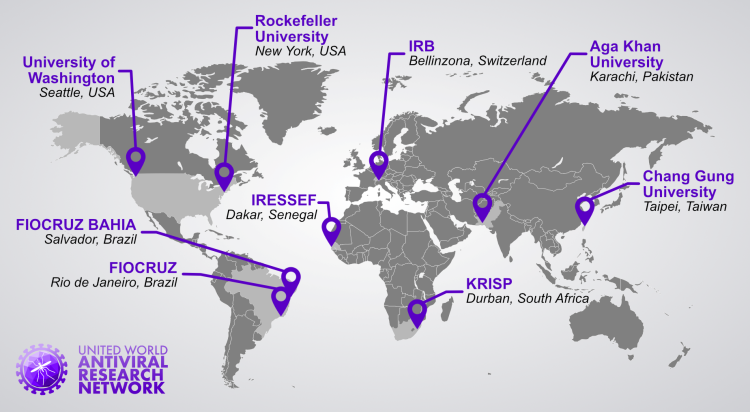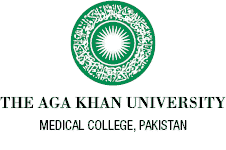United World for Antiviral Research Network (UWARN) study
Principle Investigator: Najeeha Talat Iqbal
Team members: Farah Qamar, Erum Khan, Ali Faisal Saleem
Funding agencies & funding:
National Institute of Health (NIH) USA
CREID (Center for Emerging Infectious Diseases)
USD $752,034
Introduction
UWARN addresses emerging viral infectious diseases by carrying out research with collaborating partner research laboratories in Brazil, Pakistan, Senegal, South Africa and Taiwan.
UWARN research will develop innovative diagnostic reagents and improve understanding of how viruses manipulate the human immune system. This will facilitate the development of better biomarkers to predict severe disease as well as host-directed therapies that could improve outcomes of viral infection.
UWARN will serve as
one of ten NIAID Centers in the CREID Network, consisting of multidisciplinary teams of investigators, working in over 30 countries. The CREID network will be coordinated by the
Research Triangle Institute (RTI), a large nonprofit research organization with regional and project offices in over 75 countries, and Duke University, known for its medical research and home to the
Duke Human Vaccine Institute. Together they will serve as the
CREID Coordination Center (CC).

Project outline
AKU is contributing towards development of clinical cohorts in UWARN from in-patient and out-patient surveillance of viral/febrile illness, investigating the etiology of viral illness, developing molecular diagnostics for Dengue, Zika and Chikungunya viruses.
Our team is working on understanding key immune pathways activated during viral illness, deposition of SARS CoV sequencing in hospitalized patients and the associate severity of diseases with mutations in Spike proteins.
We are undertaking outbreak investigations of new emerging pathogen and reporting unexplained viral/febrile illness.
Project aims
We aim to build international laboratory capacity and clinical cohorts in South America, West and South Africa, and South and East Asia to understand emerging arboviruses using genomic approaches, and establish specimen and information sharing networks. Detection of novel viral emergence will depend upon capacity for sampling and local sequence analysis. UWARN laboratories will serve as a resource for other centers in the EIDRC network, contributing expertise in immune response, monoclonal antibodies, and protein design.
Timeline: 2021-2025
Published results
Position openings
Field coordinator
Get in touch
najeeha.iqbal@aku.edu
kumail.ahmed@aku.edu


